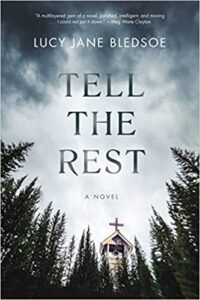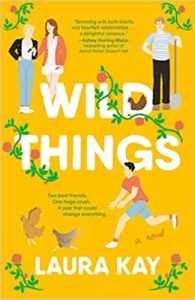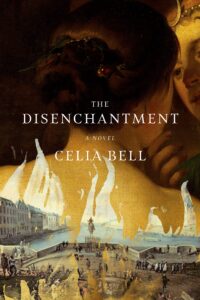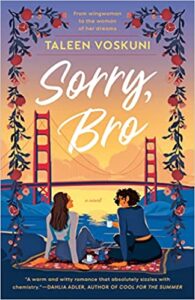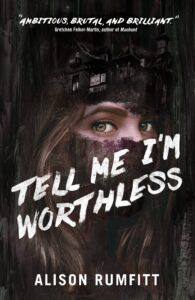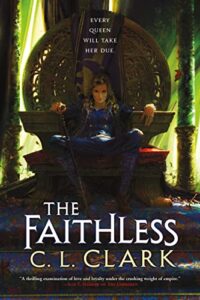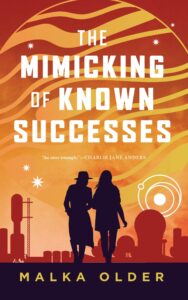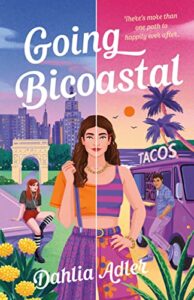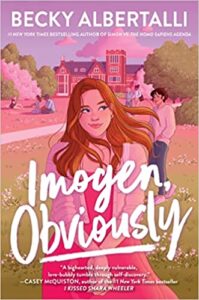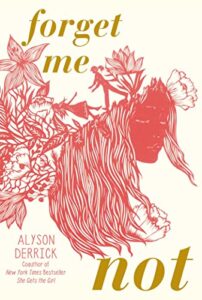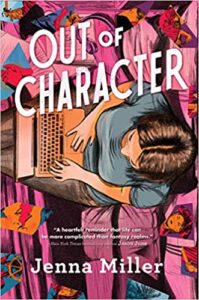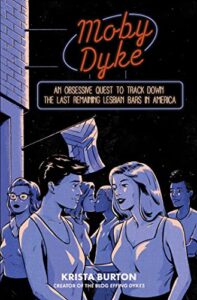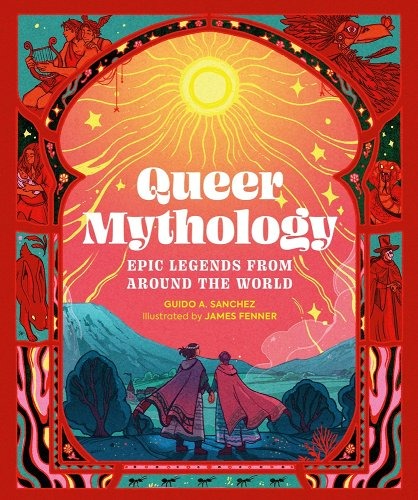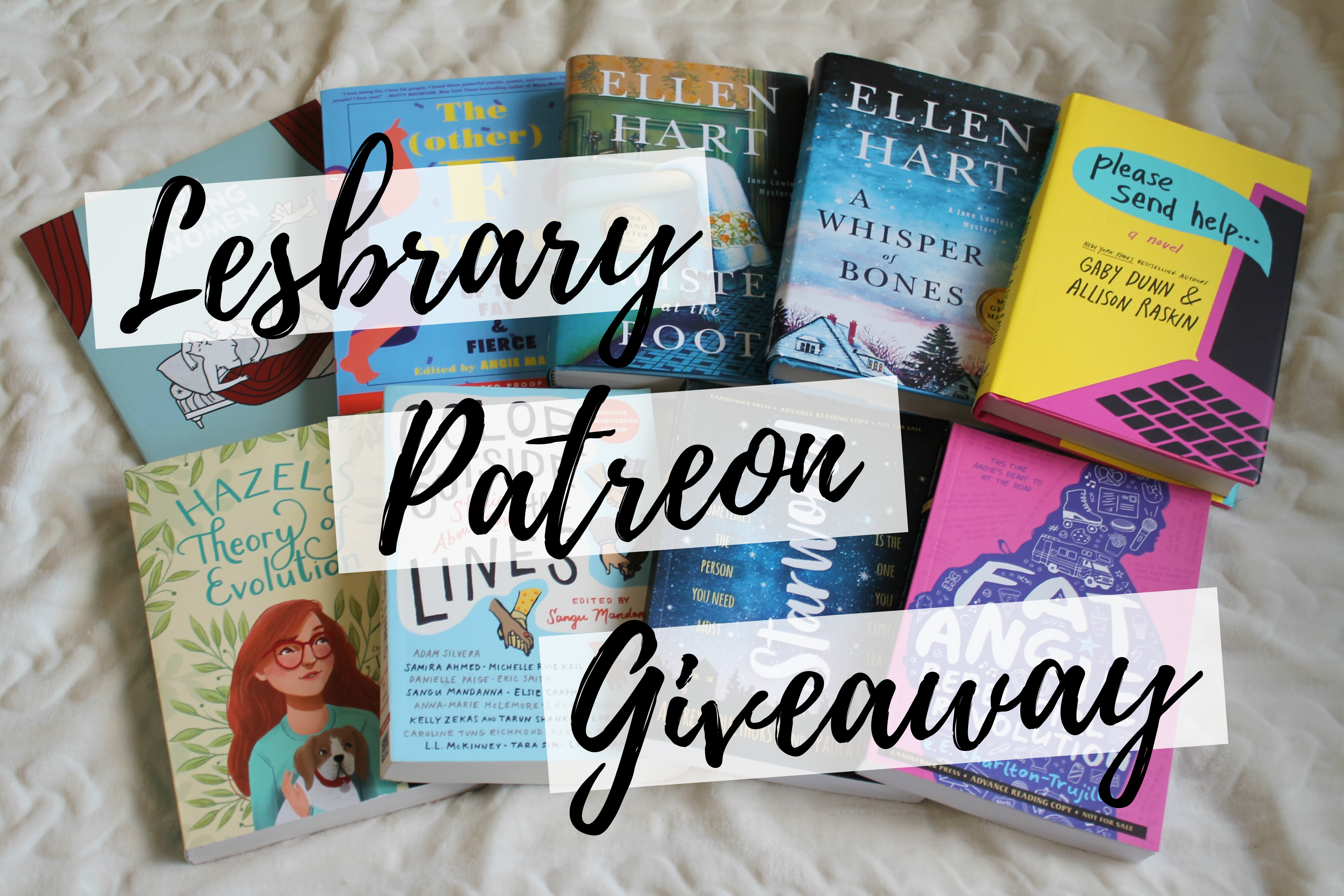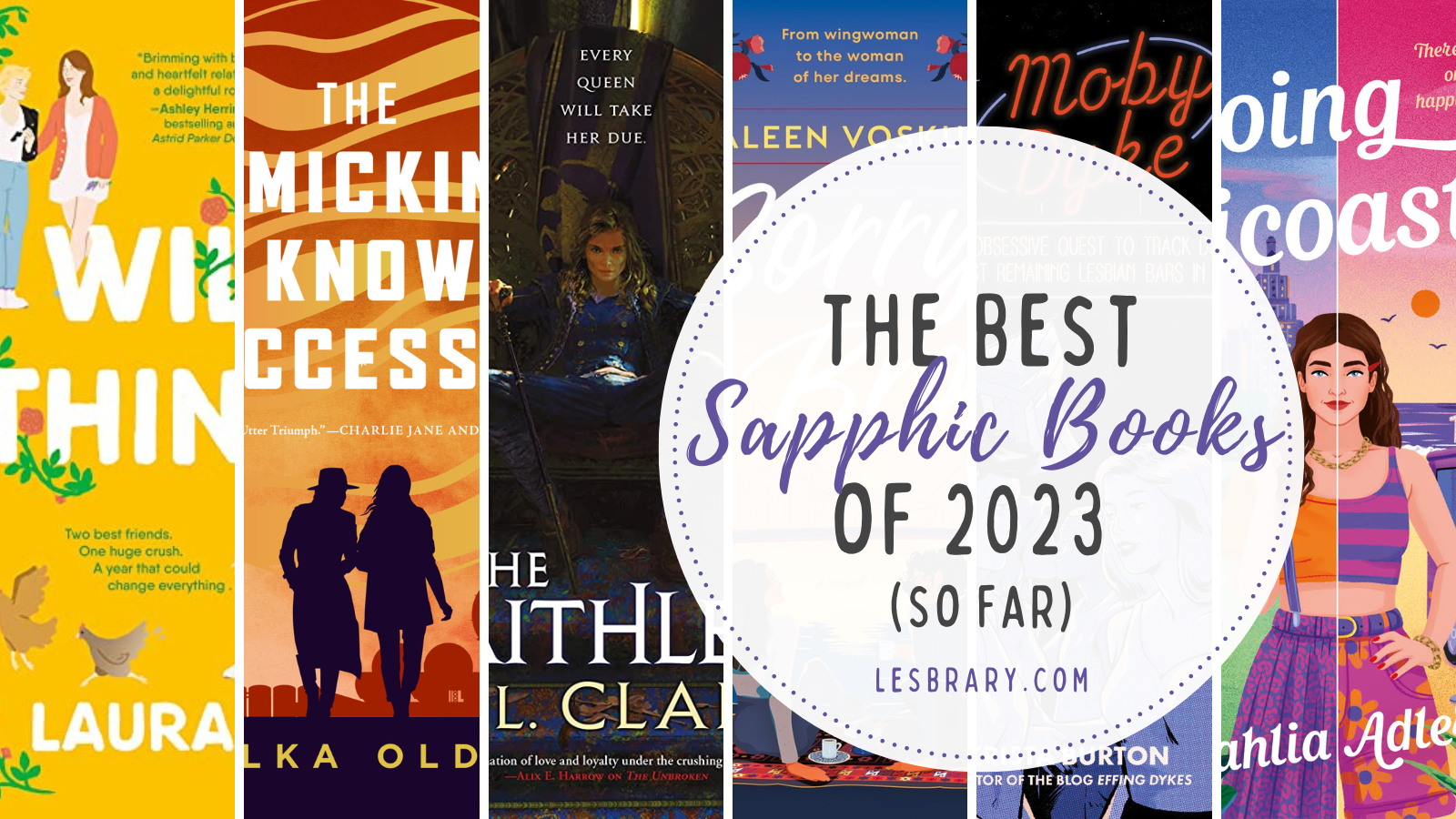
The last year or two has brought such an abundance of sapphic books, especially in terms of traditionally published titles. Sapphic books have finally caught up to M/M books in traditional publishing, though there are still many queer identities as well as intersectionalities (trans sapphic books, sapphic books by authors of color, disabled sapphic books, etc) that have a long way to go. Still, it’s worth celebrating the wins we do have!
Here are a dozen of the sapphic books out in the first half of 2023 that Lesbrary reviewers have read and loved. This is nowhere near an exhaustive list of the fantastic bi and lesbian books out this year, of course! As much as we’d love to review every single sapphic book released, it’s just not possible. Let us know your favourites from this year!
Tell the Rest by Lucy Jane Bledsoe (Fiction)
This is a book about the aftermath of conversion therapy camp, following a gay and lesbian character in their lives as adults and then flashing back to their time at “Celebration Camp.”
Unsurprisingly, this isn’t a light read. It feels like an open wound: Delia especially is still hurting so much and hasn’t gotten closure. Eventually, though, we do see her begin to work through it, accompanied by the glimpses of the lives of the teenage girls she’s coaching.
If you like to read character studies and quiet stories about working through trauma—and trying to lead a high school girls’ basketball team to glory, because that really is a big focus—I highly recommend this one. It’s a thoughtful, sometimes painful, but effective narrative, and it’s one that’s interesting to read after books like The Miseducation of Cameron Post, because this looks at not just the immediate horror, but the aftermath of being taught to hate yourself as a young person.
Read Danika’s full review for more.
Wild Things by Laura Kay (Fiction)
Laura Kay could teach a masterclass on the low-key, wholesome, slightly messy queer rom com. Wild Things is a friends-to-lovers romance, but also a heartwarming exploration of found family. Kay breathes life into the book’s characters, all of whom are flawed and lovable and distinctly themselves. Ray, the effortlessly cool lesbian love interest, is spunky and enters every DIY farmhouse project with infectious enthusiasm. Will is the group’s token straight man, a sensitive soul leaning hard on his friends following a breakup with the woman who was supposed to have escaped to the countryside with him. Jamie is a Thai, biracial gay man who drags his friends to karaoke nights and forges a bond with the commune’s four chickens. It is impossible not to feel the love between this motley crew of friends, who simultaneously lift each other up and call each other out on their bullshit. Even minor characters feel fully realized and essential to the plot, driving home the notion that family extends far beyond blood relations, that everyone has a place to belong.
Recommended for fans of droll British humor, readers of In at the Deep End and Queenie, and watchers of Fleabag and Feel Good.
Read Susannah’s full review for more.
The Disenchantment by Celia Bell (Historical Fiction)
Celia Bell’s debut novel is a stunning example of queer historical fiction at its finest.
Set in seventeenth-century Paris, The Disenchantment follows Baroness Marie Catherine, who lives in a world of luxury, entertainment, and intrigue. However, there is also an undercurrent of darkness racing through Parisian nobility: rumours of witchcraft, deliberate poisoning, and fraud abound, and the voracity of the rumour mill means no one is completely safe. Marie Catherine hides her own secrets.
At the heart of Marie Catherine’s liberated existence beyond her husband is Victoire Rose de Bourbon, Mademoiselle de Conti. Androgynous, bold, and seemingly fearless, Victoire and Marie Catherine are lovers, and Victoire quickly proves to be a source of joy in Marie Catherine’s life. She admires Victoire’s confidence and freedom, and as the situation becomes more and more volatile in her home, Marie Catherine knows she must escape. When a violent murder occurs involving those close to Marie Catherine, she is faced with a choice, and the one she makes leads her down a path she could never have predicted, and toward people who are committed to protecting their own interests.
This novel felt like a mix of genres in the best way—part literary fiction, historical fiction, crime fiction, mystery, and Gothic. It kept me guessing until the very end and felt like a thoroughly original, gorgeous historical portrait.
Read Rachel’s full review for more.
—–
If you find posts like this useful, help us keep the lights on by supporting the Lesbrary on Patreon or Ko-Fi. $2 and up Patreon supporters get entered into a queer book giveaway every month!
—–
Sorry, Bro by Taleen Voskuni (Romance)
Taleen Voskuni’s promising sapphic debut packs more than your average meet-cute romance. Sorry, Bro follows an Armenian American woman’s quest to balance familial duty, identity, career aspirations, and, of course, love.
As Nareh grows closer to Erebuni, she is forced to confront both her ambivalence about her ancestry as well as her bisexuality, which she fears will alienate her from the Armenian family she is just starting to better understand.
Voskuni does a beautiful job developing Nareh’s and Erebuni’s slow-simmering romance, which feels simultaneously familiar and refreshing. I rooted not only for their love, but for Nareh’s growth through the book as she carves a path that both empowers her and brings her closer to her family and greater community. I fell in love with Erebuni’s motley crew of Armenian American friends, who welcome Nareh into their fold and give her a newfound sense of belonging.
Read Susannah’s full review for more.
Tell Me I’m Worthless by Alison Rumfitt (Horror)
The pull quote on the front cover of Tell Me I’m Worthless advertises it as “ambitious, brutal, and brilliant,” and I think that’s a good starting point, because it’s not a nice or neat horror book. There is a house, and it is haunted, but not by any singular ghosts. Rather, the house deals in corruption, trauma, and the little terrible voice in the back of your head, and it can’t be exorcised or rebuilt. Rumfitt shoves her characters to scrabble in the metaphorical blood and muck of their mutual trauma and asks them to deal with their own memories and the creeping rise of fascism in their lives.
Tell Me I’m Worthless stars two women, Alice and Ila, who are both dealing with the trauma of a shared event. In their past, they were a unit—best friends turned lovers, even if they didn’t really talk about their relationship. Before leaving university, they and their friend Hannah had all decided to spend the night in a haunted house. Alice and Ila walked out with conflicting memories of what happened; Hannah never walked out at all. Now, Alice has turned to drugs and alcohol to escape the ghosts she can see, and Ila has joined the TERFs in an attempt to process her memories. But the House hasn’t loosened its grip on their lives, and it’s calling them back once again.
I love the editors lately who are greenlighting queer horror that delve deeper into queer experiences and states of mind in unique ways. There’s some great work going on out there, and Tell Me I’m Worthless is going onto my rec list.
Read Maggie’s full review for more.
The Faithless (Magic of the Lost #2) by C. L. Clark (Fantasy)
I finished The Unbroken unsure if I would continue in the series: it’s a brilliant, fascinating military fantasy book that grapples with colonialism, and it absolutely wrung me out as I read it. Still, I couldn’t stop thinking about the world and characters, so by the time The Faithless came out, I was eagerly anticipating it.
I ended up loving this even more than the first volume. To avoid spoilers, I’ll say that while the first book takes place on the front lines of a bloody revolution, The Faithless is more about court intrigue and political machinations—still dramatic and exciting, but a little lighter than The Unbroken.
Then, of course, there’s the will-they-won’t-they tension between Touraine and Luca. The mutual pining! I enjoyed their dynamic more in this volume, because they’re closer to a level playing field.
Also, have you seen this cover?? What sapphic could resist?
Full review to come.
The Mimicking of Known Successes by Malka Older (Science Fiction)
In The Mimicking of Known Successes, Malka Older creates a cozy murder mystery in humanity’s distant future on Jupiter. This novella was a delightful, satisfying read. The action clicked along nicely, the world-building was intriguing, and Mossa and Pleiti were great characters.
Mossa, an Investigator, is summoned to the furthest reaches of the network of floating platforms humanity has created to settle Jupiter in order to investigate a disappearance. The victim is a university man, and Mossa’s initial cursory investigation can find no supporting evidence of a supposed suicide, nor why the man would come to such a distant platform in the first place. Seeking more insight into his politics and motivations, Mossa enlists the help of Pleiti, her ex-girlfriend. Pleiti is part of a team of Classical scholars who study ecosystems and environments as part of a larger movement to eventually rehabilitate and return to Earth. Together they explore university politics, Jupiter’s largest tourist attraction, and their re-kindling romantic tension with each other.
Read Maggie’s full review for more.
Going Bicoastal by Dahlia Adler (Young Adult Contemporary)
This is the most bisexually structured book I’ve ever read. Natalya has to choose where to spend her summer: with her dad in NYC or with her estranged mother in LA. Oh no, forcing a bisexual to make a binary choice! But, Sliding Doors-style, we get to see the results of both: Going Bicoastal alternates chapters between NYC, where she gets to know the girl she’s been crushing on from a distance for ages, and LA, where she meets and falls for a guy at her internship.
Somehow, it felt completely natural to flip back and forth between the two, and (spoiler?) neither of them are the right choice or the wrong choice. This was surprisingly soothing to my anxious overthinker brain: whichever Natalya had picked, things would turn out okay for her. This is two YA romances in one, each with their own distinct dynamic. This is my favourite Dahlia Adler book yet, but definitely check out her others, too! And side note, you need to be following LGBTQ Reads, which is run by Dahlia Adler, because that’s how amazing she is.
This one and Imogen, Obviously both have Jewish main characters, which I’m happy to see is becoming more common in queer YA!
Full review to come.
Imogen, Obviously by Becky Albertalli (Young Adult Contemporary)
This book is the epitome of the enthusiastic ally to bisexual pipeline, and Imogen as a character broke my heart.
Imogen is straight ally surrounded by queer friends and family. So when her best friend, Lilli, admits she lied to her college friends and said they used to date, it’s no big deal to go along with it. But she worries about appropriating queerness, especially when she starts to get confusing feelings for Lilli’s friend, Tessa.
Imogen is a people-pleasing overthinker who analyzes herself to death, twisting herself into knots until she loses sight of the very obvious. In a social media graphic for the book, the author describes Imogen as having queer discourse brainworms, which is a good way to put it. She tries to educate herself about queer issues, but just ends up more confused.
I loved reading this, even if being inside Imogen’s head could be a little too relatable at times. This is actually my first Becky Albertalli read, but I can now confirm the hype is justified. I highly recommend it to any queer person who once also thought they were hopelessly straight.
Read Danika’s full review for more.
Forget Me Not by Alyson Derrick (Young Adult Contemporary)
This is an amnesia romance, but while that can sound like a soap opera premise—girl meets girl, girls fall in love, girl gets amnesia and forgets girl, girl tries to win her back—there’s an undercurrent of sadness here that keeps it feeling more grounded than that suggests.
There is a heartwarming romance at the heart of Forget Me Not, including that Stevie feels drawn to Nora even without her memories, and it’s adorable to watch her fall for Nora all over again. But the amnesia trope and almost-too-perfect relationship is tempered by the more serious context of the story, including Stevie’s internalized homophobia.
I meant to just read the first few chapters of this and found myself instead reading it in one day. Even though we know the answers, it was compelling to watch Stevie try to piece together what happened in the time she lost and consider whether she really needs to recover it or whether she should embrace the opportunity to start fresh.
Read Danika’s full review for more.
Out of Character by Jenna Miller (Young Adult Contemporary)
Cass is a fat, nerdy queer teenager who is obsessed with a book series and roleplays as one of the characters in an online community in order to escape from her stressful home life. It was nice to read about a main character who is so confident both in being fat and being a lesbian, especially as a teenager. There still aren’t many examples of that in media.
Even the side characters feel three dimensional, and the conflict here all comes from people having different perspectives, which are each valid. While there are a lot of elements to this story, including family as well as romance, it was the friendships that stood out to me, and how seriously they’re taken. They’re often messy and imperfect, but they’re also so important to Cass, and they can be unexpected and beautiful even when they’re messy.
I highly recommend this for nerdy queer teens and those who once were nerdy queer teens—though I’m sure lots of other readers would enjoy it, too.
Read Danika’s full review for more.
Moby Dyke: An Obsessive Quest to Track Down the Last Remaining Lesbian Bars in America by Krista Burton (Nonfiction)
This book really just had to live up to the title for me to love it, and it did.
Krista Burton used to run a blog called Effing Dykes that I followed and enjoyed, so I knew I was already a fan of her writing. In Moby Dyke, she weaves together a travelogue of lesbian bars, personal writing about her own life, and discussions about why lesbian bars keep closing.
This book has a charming, personal voice—it feels like a friend telling you a story. There are brief detours into the rest of Krista’s exploration of a city, and some glimpses into her personal life. It makes for a very readable book that somehow didn’t feel repetitive, even though each chapter is essentially the same thing: describing a new bar and recounting how patrons/owners answered her questions.
It’s interesting to get a broad look at how lesbian bars operate and how they describe themselves. Krista quickly found out that while these bars were usually owned by lesbians and were in some way lesbian bars, each of them said they “welcome everyone.” She discusses this push and pull between wanting to be inclusive and wanting to have a space just for queer people.
I wasn’t sure if this would end up being a eulogy for lesbian bars, a document to preserve them before they all disappear forever, or whether it would be a celebration. Thankfully, it’s much more of the latter—spoiler alert: the number of lesbian bars has grown since she started writing the book!
Full review to come.
